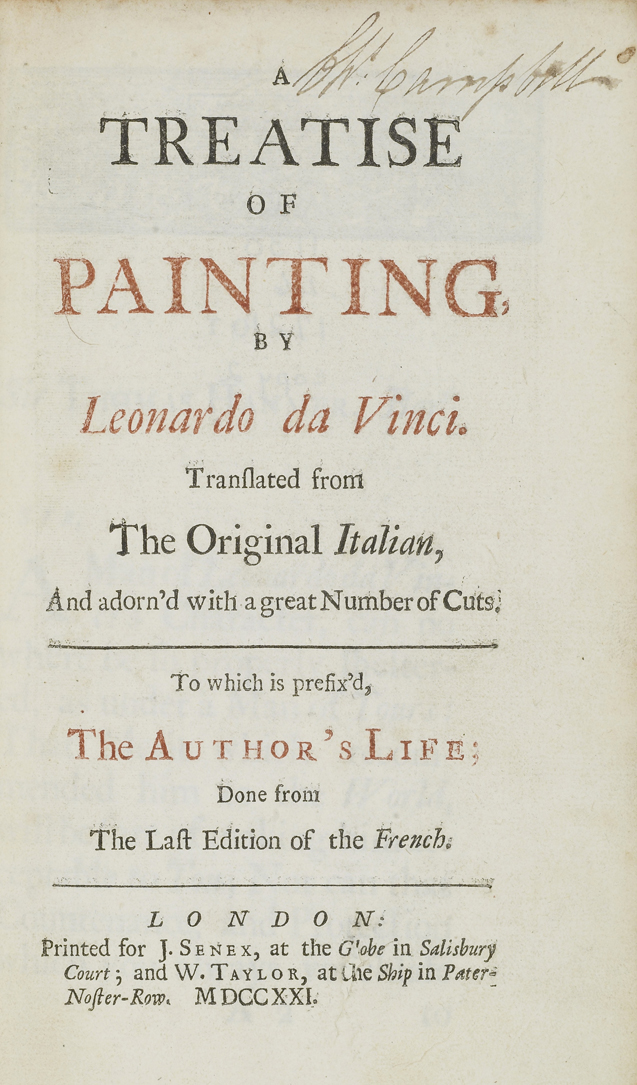
A Treatise on Painting, by Leonardo da Vinci
1721
Senex and Taylor, London
Chapter Display  |
|
A Painter must therefore be Universal, and apply himself to the Study and Consideration of all Objects; but so as to attend in a particular manner to those parts of each, which are the most beautiful and perfect: By this means his Imagination will become like a Mirrour, representing every thing laid before it, in its proper Character and Colours.
But further, a Painter who is not equally pleas'd with all Parts of his Art, will never become Universal. My Friend Boticello, for Instance had a peculiar Pique against Landskips, and thought them much beneath his Application; the effect of which was, that being a very sorry Landskip Painter, his merit in other matters was the less regarded. It was a saying of his, that a Palet full of Colours being thrown against the Wall, wou'd leave a stain behind it properly enough representing a Landskip. 'Tis true indeed, that by help of a strong fancy, one may spy Heads, Battles, Rocks, Seas, Clouds, Woods, &c. in a Wall so smeared; it being here, as in the Ringing of Bells, where every Body is at liberty to make them say what he pleases: But then, though such a Fortuitous mixture of Colours may start a hint, or give rise to a new Invention, yet will it not furnish the least assistance towards the Execution, or finishing any thing it has occasion'd.
A Painter who wou'd appear Universal, and please People of different Tasts, must set off several Figures in the same Piece, both with very deep and very soft shadows; taking care by the way, to make the reason of such diversity apparent.